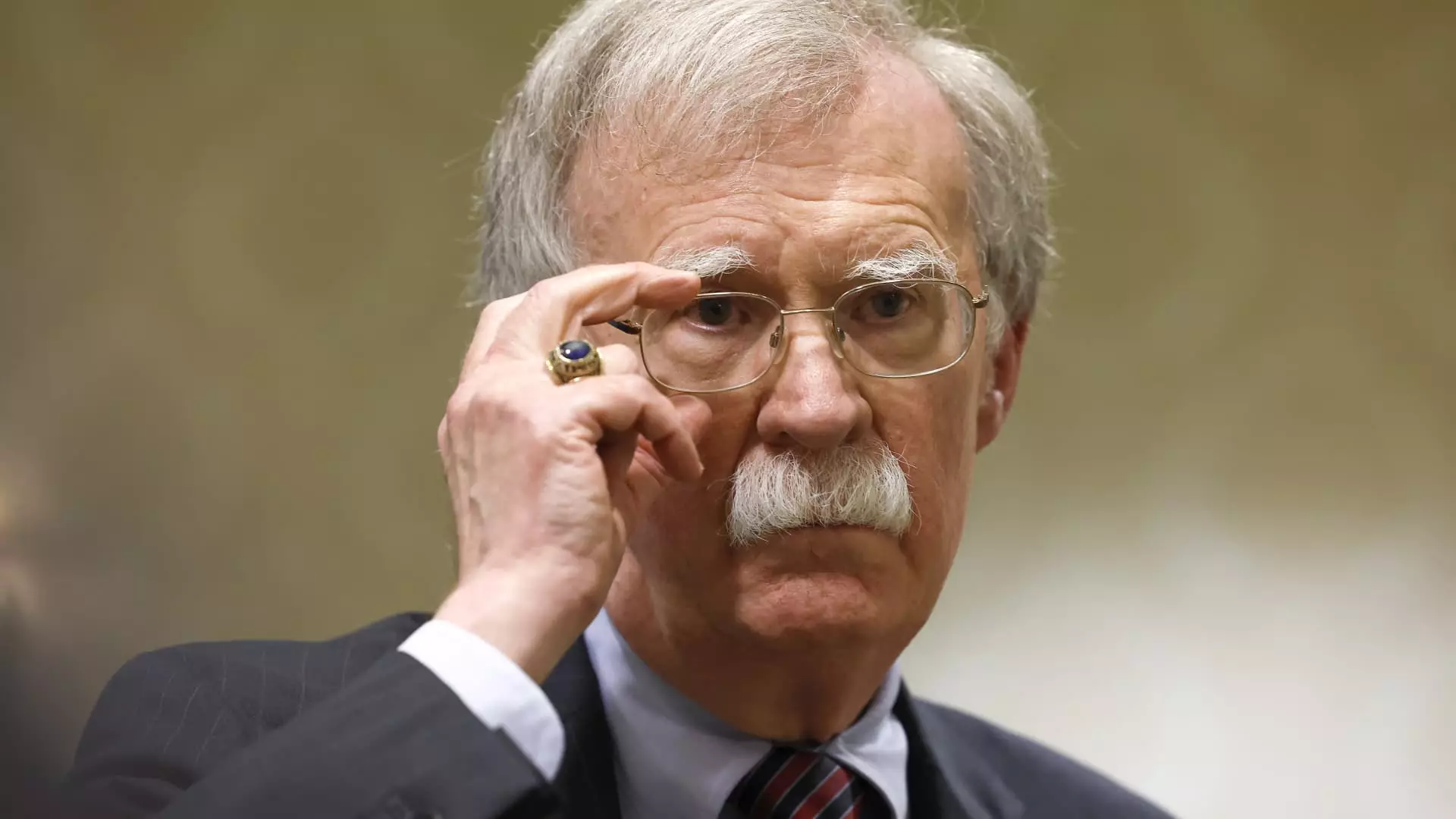When President Donald Trump initiated his aggressive tariff policies aimed at China, the ripple effects were quickly felt across global markets and among U.S. allies. Instead of standing firm against a nation often accused of economic malpractice, Trump’s administration seemed to unleash a chaotic frenzy of tariffs that didn’t just punish rivals but also inflicted collateral damage on friendly nations. This reckless approach to economic diplomacy serves as a dire warning about how a brash, unilateral strategy can backfire, creating more problems than it solves.
Former National Security Advisor John Bolton criticized this tariff strategy, asserting that it not only alienates allies but also empowers adversaries. By slapping tariffs on long-time friends while waging a trade war with China, Trump is inadvertently strengthening the very competitor he intended to challenge. The rationale behind Trump’s tariffs appears to be an erratic miscalculation, revealing a deeper misunderstanding of international economics. Such policies undermine not just economic stability but also the fundamental alliances that have been a cornerstone of U.S. diplomacy since World War II.
Misguided Allies, Misguided Policies
In Bolton’s stark assessment, the failure is clear: “This is certainly not the way you treat your friends.” By disregarding the collaborative approach needed to tackle the shared grievances against China’s trade practices, Trump has isolated the U.S. from a global coalition that potentially could have pressured China into making concessions. Instead of rallying partners such as Japan, South Korea, and various European nations, the unilateral tariff measures have sent these partners reeling, potentially leading them to forge new alliances with China.
With the backdrop of market turbulence following the introduction of sweeping tariffs, it is evident that such strategies are not just economically foolish but strategically disastrous. Economists and global leaders alike criticized Trump’s “liberation day,” noting that such blanket tariffs lack sound financial grounding and could spiral into a prolonged economic malaise. The administration’s myopic view risks exacerbating the trade tensions when what was truly needed was a unified front against trade malpractice—something that is now buried under layers of enmity.
China’s Rising Influence Amid U.S. Turmoil
In a striking twist of fate, China’s response to U.S. tariffs has been anything but passive. Xi Jinping is actively seeking to shore up support and form new alliances in Southeast Asia, posing a clear challenge to U.S. hegemony in the region. As Bolton pointed out, the Chinese president is crafting a narrative of stability amidst the chaos that Trump’s policies have unleashed. Rather than facing consequences for their actions, China is seizing an opportunity to project strength and reliability—qualities that are sorely lacking in the current U.S. administration.
By engaging in a charm offensive throughout Southeast Asia, Chinese leadership is already countering U.S. influence, which may lead to a more significant geopolitical shift toward China. Nations once aligned closely with the U.S. might reconsider their loyalties as they observe the unfolding spectacle of self-sabotage that characterizes Trump’s trade strategy. Bolton’s insight into the Chinese initiative to form a united front against U.S. tariffs underscores a broader trend wherein adversaries take advantage of a fragmented American foreign policy landscape.
The Cost of Isolationism
Another significant consequence of Trump’s tariff war is the erosion of America’s credibility on the world stage. The long-standing trust that allies extended to the U.S. is being tested like never before. Critics, including international leaders such as French Prime Minister François Bayrou, have noted that Trump is casting aside decades of diplomacy in favor of a blunt-force approach that resembles dictation more than negotiation. The implications of this are profound: If the U.S. continues to alienate its allies while demanding their compliance, it invites a future where those partnerships weaken, leading to an inevitable decline in American influence.
The narratives built over the years—centering around the idea of the U.S. as a reliable ally—are now being dismantled, piece by piece, by reckless tariff measures and antagonistic rhetoric. As Bolton succinctly stated, “the damage to our credibility…is being shredded.” Optimistically fixing the relationship with allies will take years—if it’s even possible—yet Trump’s government seems resigned to doubling down on this misguided isolationist strategy, jeopardizing not just trade but broader national security.
In an era when the world is more interconnected than ever, the folly of Trump’s approach is stark. The threat of a protracted and damaging trade war seems to be losing the U.S. more than just money; it’s robbing it of its position as a collaborative world leader. Trump’s failure to grasp this reality could lead to consequences that extend far beyond the trade ledger, unearthing risks that could have long-lasting effects on America’s global standing.

Leave a Reply